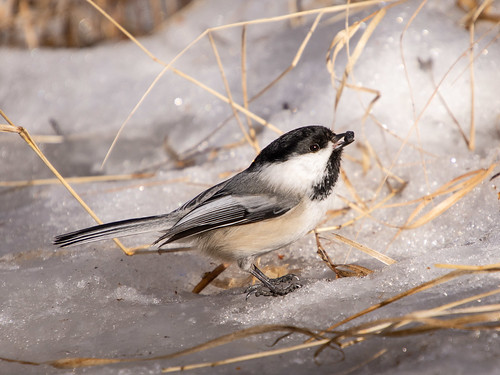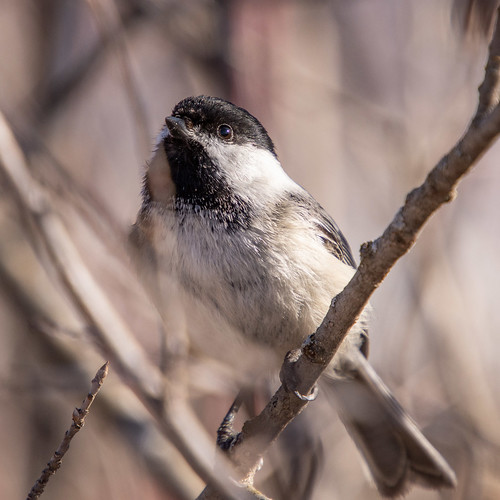Tuesday, 17 December 2019
EcoSask News, December 17, 2019
Upcoming Events
Zero-Waste Gift Wrapping, Dec. 21 (Saskatoon)
Wrap your gifts with used gift wrap or cloth from 10 am-5:30 pm, Dec. 21.
Science Experiments, Dec. 27 (North Battleford)
Children ages 5-12 are invited to play with science from 2-3 pm, Dec. 27, in North Battleford.
Mindfulness Cross-Country Ski, Dec. 28 (Macdowall)
Enjoy a cross-country ski with the 306 Outdoor Tribe at Eb’s Trails from 1-4 pm, Dec. 28.
Promoting Energy Efficiency, Jan. 8 (Saskatoon)
Dave Stevenson, Ministry of Environment, will discuss energy efficiency promotion in Saskatchewan at the Jan. 8 breakfast meeting of the Saskatchewan Energy Management Task Force.
Meadow Lake Tracks & Crafts, Jan. 11 (Meadow Lake)
Enjoy a guided snowshoe hike and craft from 1-3:30 pm, Jan. 11, at Meadow Lake Provincial Park.
Saskatoon Nature Society Field Trips
Saskatoon Young Naturalists
Jan. 18, 1-3 pm – Tracks & Scats
Feb. 8, 1-2:30 pm – Chickadee Pishing
Space is limited; register early to avoid disappointment.
Other Saskatoon Nature Society Field Trips
Jan. 12, 2-3:30 pm – Sanatorium Site Birding
Everyone is welcome. Check the Saskatoon Nature Society’s website for full details and updated information.
A full list of upcoming events can be found on the EcoFriendly Sask Calendar
In the News
Wetland / Waste Land: A Conservation of Change is a 25-minute documentary looking at the emerging conflicts in the Canadian prairies over the apparently conflicting needs of wetlands and agriculture.
Researchers have found toxic chemicals used in smartphones, televisions, computer displays, and solar panels in nearly half of dozens of samples of household dust. “These chemicals are semi-liquid and can get into the environment at any time during manufacturing and recycling, and they are vaporized during burning. Now we also know that these chemicals are being released by products just by using them,” said Giesy, Canada Research Chair in Environmental Toxicology, University of Saskatchewan.
The National Farmers Union’s report on Tackling the Farm Crisis and the Climate Crisis: A Transformative Strategy for Canadian Farmers and Food Systems examines the impacts of climate change on agriculture in Canada as well as the opportunities that agriculture provides to become part of the solution.
The City of New York has passed a bill “that will update the building code with design and construction requirements aimed at making buildings safer for migratory birds. It will require exteriors on the lowest 75 feet of new buildings, and on any structure above a green roof, to have avian-friendly materials such as patterned glass that make transparent surfaces more visible to birds flying at full speed. The bill doesn’t include a mandate to retrofit existing buildings, but requires any future renovations to comply with the standards, which are set to take effect in December 2020.”
Alberta is building a wildlife overpass east of Canmore, the first outside Banff National Park, and adding an underpass in the Crowsnest Pass. The locations were chosen as being hot spots for collisions.
Boston plans to build a bridge that will ban single-occupancy cars and favour pedestrians and cyclists.
“Wildlife biologist and science communicator David Steen has taken the most common snake myths, tall tales and snake safety rules and applied real science to them in his wildly entertaining Secrets of Snakes: The Science Beyond the Myths.” [book review]
This is the last issue of EcoSask News for 2019. We’ll be in holiday mode for the next two weeks with Christmas Eve and New Year’s Eve Specials - interesting and unexpected items for you to enjoy over the holidays.
EcoSask News is a weekly round-up of local news and events. Email us if you have items you would like us to include.
You can follow EcoFriendly Sask by liking us on Facebook, following us on Twitter, or by email (top right corner).
Labels:
Agriculture,
Birds,
Children,
Climate Change,
Construction,
Films,
Macdowall,
Meadow Lake,
North Battleford,
Saskatoon,
Ski,
Transportation,
Urban,
Waste,
Wetlands,
Wildlife,
Winter

